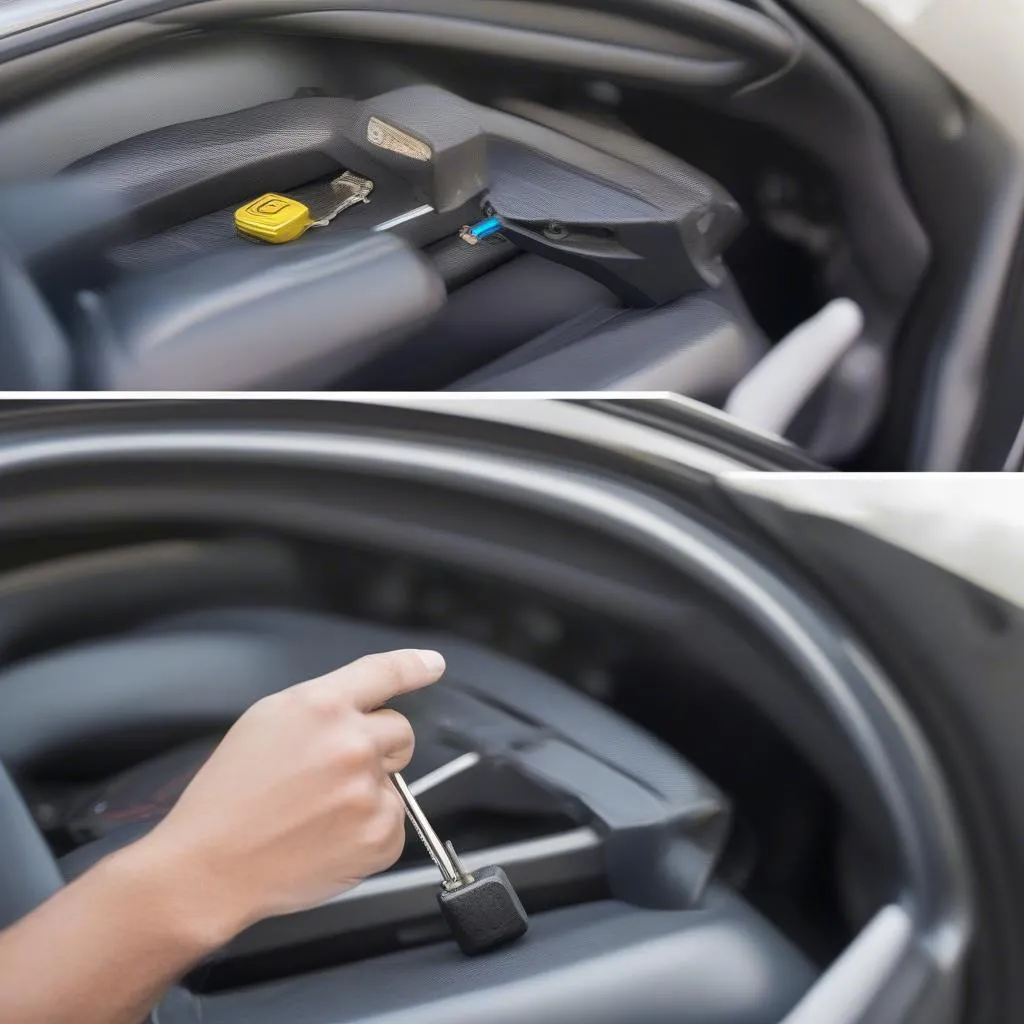A new car battery should last for several years, so if you’re finding yourself saying, “My new battery keeps dying,” there’s clearly a problem that needs addressing. This issue can be incredibly frustrating, leaving you stranded and unsure of the cause. Don’t worry, this article will guide you through the common reasons why your new battery keeps failing and provide practical solutions to get you back on the road. Here’s what you need to know to diagnose and fix the problem.
Why Does My New Battery Keep Dying?
Several factors can lead to premature battery failure, even in a brand new battery. Everything from faulty installations to parasitic drains can be the culprit. Identifying the root cause is crucial for implementing the correct solution. Let’s delve into the most frequent culprits.
Common Causes of Battery Drain
-
Faulty Alternator: The alternator is responsible for recharging the battery while the engine is running. A malfunctioning alternator won’t charge the battery properly, leading to a dead battery.
-
Parasitic Drain: Even when your car is off, certain electrical components continue to draw power. This is called a parasitic drain. A significant drain can deplete your battery overnight. Identifying and fixing these drains is essential.
-
Bad Battery: Sometimes, even new batteries can be defective. Internal faults can cause the battery to discharge rapidly or fail to hold a charge. If you suspect a bad battery from the get-go, consider having it tested.
-
Loose or Corroded Connections: Loose or corroded battery terminals can prevent proper charging and discharge. Check the connections for any signs of corrosion or looseness. If you find any issues, follow the steps below for instructions on cleaning corroded terminals.
-
Extreme Temperatures: Both extreme heat and cold can significantly impact battery performance and lifespan. Excessive heat can cause the battery fluid to evaporate, while extreme cold can slow down chemical reactions within the battery.
-
Excessive Short Trips: Short trips don’t allow the alternator enough time to fully recharge the battery, especially after starting the car, which requires a significant power surge.
Diagnosing the Problem
Diagnosing the issue involves a combination of visual inspection and testing with a multimeter. Here’s a breakdown of how to pinpoint the problem.
-
Visual Inspection: Check the battery terminals for corrosion or looseness. Look for any signs of damage to the battery casing.
-
Battery Test: Use a multimeter to test the battery voltage. A fully charged battery should read around 12.6 volts. a bad battery can often be diagnosed with a simple voltage test.
-
Alternator Test: With the engine running, the voltage should be around 14 volts. A lower reading suggests a faulty alternator.
-
Parasitic Drain Test: With the ignition off, disconnect the negative battery cable and connect the multimeter in series between the cable and the battery terminal. A reading higher than 50 milliamps indicates a parasitic drain. If you suspect this issue, prius battery drains overnight and similar articles can provide more specific guidance. This problem is common across various makes and models.
Solutions for a Dying Car Battery
Once you’ve identified the cause, implementing the appropriate solution is crucial. Here are some common fixes:
-
Replace the Alternator: A faulty alternator requires replacement to ensure proper battery charging.
-
Fix Parasitic Drains: Identify and disconnect the component causing the parasitic drain. This may involve repairing faulty wiring or replacing malfunctioning components. car battery keeps draining offers solutions for various parasitic drain scenarios.
-
Replace the Battery: If the battery is defective, replacing it is the only option.
-
Clean Battery Terminals: Clean corroded terminals with a mixture of baking soda and water. Tighten any loose connections.
-
Limit Short Trips: Combine short trips or allow the car to run for a longer period to fully recharge the battery. You can also consider using a battery maintainer.
Expert Insights
John Smith, a seasoned automotive electrical engineer, advises, “Regular battery maintenance is key to preventing premature failure. Inspecting and cleaning the terminals periodically can significantly extend the battery’s lifespan.”
Emily Davis, a leading automotive technician, adds, “Never underestimate the impact of a parasitic drain. Even a small drain can lead to a dead battery over time. Proper diagnosis is essential for addressing this issue.”
Conclusion
Experiencing a dying car battery is a common problem, even with a new battery. By understanding the potential causes and implementing the appropriate solutions, you can effectively address the issue and keep your car running smoothly. If you continue to experience problems, consult with a qualified automotive technician. battery dead car won t start can also provide some valuable insights if you’re facing starting issues. Don’t let a dead battery leave you stranded; take proactive steps to ensure your car is always ready to go. jaguar xf low battery warning offers specific information for Jaguar owners.

